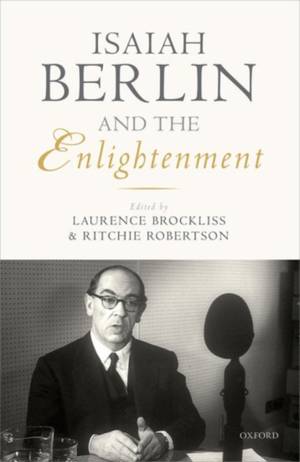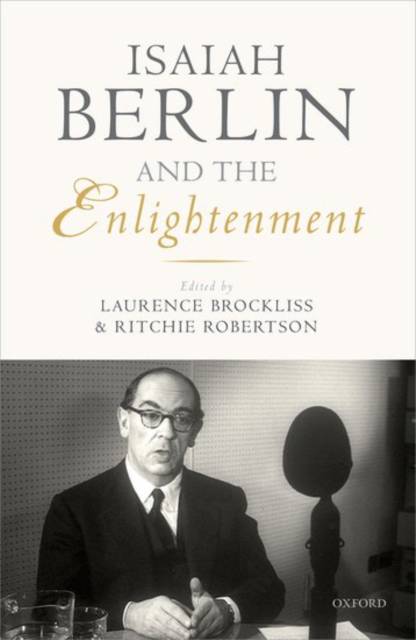
Bedankt voor het vertrouwen het afgelopen jaar! Om jou te bedanken bieden we GRATIS verzending (in België) aan op alles gedurende de hele maand januari.
- Afhalen na 1 uur in een winkel met voorraad
- In januari gratis thuislevering in België
- Ruim aanbod met 7 miljoen producten
Bedankt voor het vertrouwen het afgelopen jaar! Om jou te bedanken bieden we GRATIS verzending (in België) aan op alles gedurende de hele maand januari.
- Afhalen na 1 uur in een winkel met voorraad
- In januari gratis thuislevering in België
- Ruim aanbod met 7 miljoen producten
Zoeken
Omschrijving
Isaiah Berlin (1909-97) was recognized as Britain's most distinguished historian of ideas. Many of his essays discussed thinkers of what this book calls the 'long Enlightenment' (from Vico in the eighteenth century to Marx and Mill in the nineteenth, with Machiavelli as a precursor). Yet he is particularly associated with the concept of the 'Counter-Enlightenment', comprising those thinkers (Herder, Hamann, and even Kant) who in Berlin's view reacted against the Enlightenment's naive rationalism, scientism and progressivism, its assumption that human beings were basically homogeneous and could be rendered happy by the remorseless application of scientific reason. Berlin's 'Counter-Enlightenment' has received critical attention, but no-one has yet analysed the understanding of the Enlightenment on which it rests. Isaiah Berlin and the Enlightenment explores the development of Berlin's conception of the Enlightenment, noting its curious narrowness, its ambivalence, and its
indebtedness to a specific German intellectual tradition. Contributors to the book examine his comments on individual writers, showing how they were inflected by his questionable assumptions, and arguing that some of the writers he assigned to the 'Counter-Enlightenment' have closer affinities to the Enlightenment than he recognized. By locating Berlin in the history of Enlightenment studies, this book also makes a contribution to defining the historical place of his work and to evaluating his intellectual legacy.
indebtedness to a specific German intellectual tradition. Contributors to the book examine his comments on individual writers, showing how they were inflected by his questionable assumptions, and arguing that some of the writers he assigned to the 'Counter-Enlightenment' have closer affinities to the Enlightenment than he recognized. By locating Berlin in the history of Enlightenment studies, this book also makes a contribution to defining the historical place of his work and to evaluating his intellectual legacy.
Specificaties
Betrokkenen
- Auteur(s):
- Uitgeverij:
Inhoud
- Aantal bladzijden:
- 274
- Taal:
- Engels
Eigenschappen
- Productcode (EAN):
- 9780198783930
- Verschijningsdatum:
- 20/12/2016
- Uitvoering:
- Hardcover
- Formaat:
- Genaaid
- Afmetingen:
- 155 mm x 236 mm
- Gewicht:
- 521 g

Alleen bij Standaard Boekhandel
+ 338 punten op je klantenkaart van Standaard Boekhandel
Beoordelingen
We publiceren alleen reviews die voldoen aan de voorwaarden voor reviews. Bekijk onze voorwaarden voor reviews.









